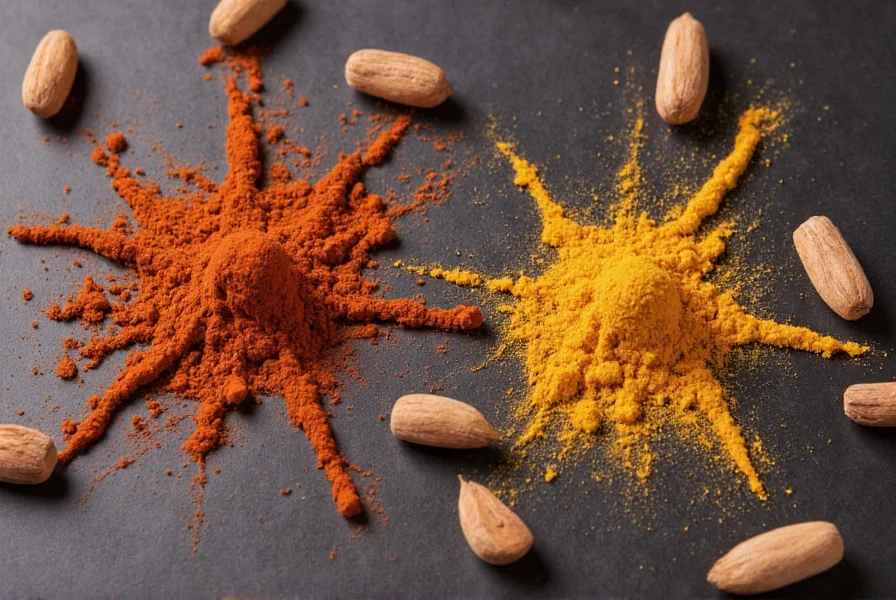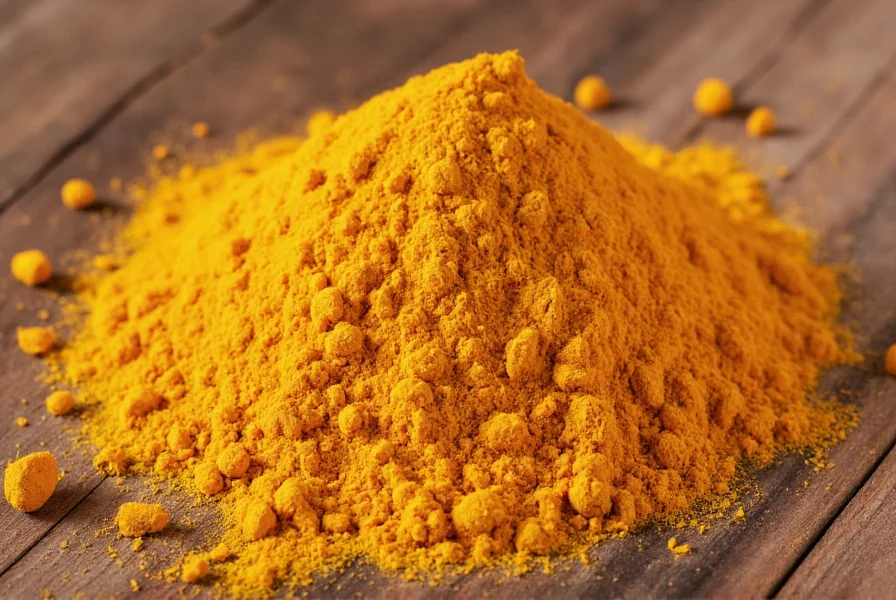Curcumin, the vibrant yellow polyphenol found in turmeric root, has captured scientific interest for its potential health benefits. While traditional medicine systems have utilized turmeric for centuries, modern research provides evidence-based insights into how this compound actually works in the human body. Understanding the scientifically proven benefits of curcumin requires examining both the promising findings and important limitations of current research.
The Science Behind Curcumin's Health Effects
Curcumin's molecular structure gives it unique biological properties that interact with multiple cellular pathways. Unlike many compounds that target single mechanisms, curcumin demonstrates multi-target effects that contribute to its potential health benefits. The most well-documented mechanism involves its ability to inhibit NF-kB, a molecule that triggers inflammation in the body. Chronic inflammation contributes to numerous health conditions, making curcumin's anti-inflammatory effects particularly valuable.

Key Evidence-Based Benefits of Curcumin
1. Potent Anti-Inflammatory Properties
Multiple clinical trials confirm curcumin's effectiveness in reducing inflammatory markers. A 2022 meta-analysis published in Nutrients reviewed 27 studies and found curcumin supplementation significantly reduced CRP (C-reactive protein) levels by an average of 32% compared to placebo. This curcumin anti-inflammatory effects appear comparable to some non-steroidal anti-inflammatory drugs (NSAIDs) but without the same gastrointestinal side effects. The research particularly supports its use for managing chronic inflammatory conditions when taken in bioavailable forms.
2. Joint Health and Arthritis Management
For individuals seeking turmeric for joint pain relief, research offers encouraging evidence. A double-blind study in the Journal of Medicinal Food followed 200 adults with osteoarthritis for 12 weeks. Those taking 1,000 mg daily of a specialized curcumin formulation reported 47% greater improvement in pain scores and 49% better function compared to placebo. The study noted curcumin's effects approached those of ibuprofen but with significantly fewer gastrointestinal complaints.
| Health Benefit | Research Support Level | Typical Dosage Range | Timeframe for Effects |
|---|---|---|---|
| Anti-inflammatory effects | Strong human evidence | 500-1,500 mg/day | 2-4 weeks |
| Joint pain reduction | Good human evidence | 1,000 mg/day | 4-8 weeks |
| Cognitive support | Preliminary human evidence | 500-1,000 mg/day | 12+ weeks |
| Heart health markers | Moderate human evidence | 700-1,500 mg/day | 8-12 weeks |
3. Cognitive Health and Brain Function
Emerging research suggests curcumin may support brain health through multiple mechanisms. Studies indicate it can cross the blood-brain barrier and may increase levels of brain-derived neurotrophic factor (BDNF), a growth hormone that functions in the brain. A 2021 randomized controlled trial with 60 adults aged 60-85 found those taking 90 mg of a highly bioavailable curcumin formulation twice daily showed significant improvements in memory and attention compared to placebo after 18 months. While promising, researchers note that curcumin and cognitive health research requires larger, longer-term studies to confirm these findings.
4. Cardiovascular Health Benefits
Curcumin shows potential for supporting heart health by improving endothelial function—the lining of blood vessels that regulates blood pressure and clotting. In a study published in the American Journal of Cardiology, 32 postmenopausal women took either curcumin or exercise training for 8 weeks. Both groups showed similar improvements in endothelial function, suggesting curcumin may offer curcumin heart health benefits comparable to moderate exercise for certain markers. Additional research indicates curcumin may help maintain healthy cholesterol levels already within normal range.
Overcoming Curcumin's Bioavailability Challenge
One significant limitation of curcumin is its poor bioavailability—meaning the body struggles to absorb and utilize it effectively. Standard curcumin has low solubility in water and gets rapidly metabolized and eliminated. This explains why early studies using plain curcumin powder showed limited effects. Modern formulations address this through several approaches:
- Piperine combination: Black pepper extract (piperine) can increase curcumin absorption by up to 2,000%
- Liposomal delivery: Encapsulating curcumin in fat molecules improves absorption
- Phospholipid complexes: Binding to phospholipids enhances bioavailability
- Nanoparticle formulations: Reducing particle size increases absorption
When evaluating turmeric supplement quality considerations, look for products specifying their bioavailability technology and third-party testing. The most effective formulations typically deliver 20-30 times more curcumin to the bloodstream compared to standard extracts.
Practical Considerations for Curcumin Use
Dosage Guidelines
Research suggests effective daily doses vary by purpose:
- General wellness: 500 mg of bioavailable curcumin once or twice daily
- Inflammation management: 700-1,000 mg twice daily
- Joint health support: 1,000 mg twice daily of specialized formulation
It's important to understand how much curcumin should I take daily depends on the specific formulation's bioavailability. Always start with the manufacturer's recommended dose and consult a healthcare provider before beginning any new supplement regimen.
Safety and Potential Interactions
Curcumin is generally well-tolerated at recommended doses, but some people may experience mild digestive discomfort. More importantly, curcumin can interact with certain medications:
- May enhance effects of blood thinners like warfarin
- Potentially interacts with diabetes medications
- May affect drug metabolism through CYP450 enzymes
- Theoretical concern with iron absorption in susceptible individuals
Individuals with gallbladder issues should consult a physician before using curcumin supplements, as it may stimulate bile production. Those scheduled for surgery should discontinue curcumin at least two weeks beforehand due to potential bleeding risks.
Setting Realistic Expectations
While the scientifically proven benefits of curcumin are promising, it's crucial to maintain realistic expectations. Curcumin is not a miracle cure, and research shows modest but meaningful effects for specific conditions. The strongest evidence supports its role in managing inflammation and supporting joint health, while other potential benefits require more extensive human research.
When incorporating turmeric into your diet, remember that culinary turmeric contains only about 3% curcumin by weight. You would need to consume approximately 15 teaspoons of turmeric powder daily to reach the 1,000 mg curcumin dose used in many studies—a completely impractical amount. This explains why specialized supplements are necessary for therapeutic effects.
Conclusion: Evidence-Based Approach to Curcumin
Curcumin represents a promising natural compound with scientifically supported anti-inflammatory and antioxidant properties. The most compelling evidence supports its use for managing inflammation and supporting joint health, particularly when using bioavailable formulations. While research continues to explore its potential benefits for cognitive function, heart health, and other areas, current evidence suggests modest but meaningful effects for specific applications.
For those considering curcumin supplementation, selecting a high-quality, bioavailable formulation and maintaining realistic expectations about its effects are crucial. Always consult with a healthcare provider before starting any new supplement, especially if you have underlying health conditions or take medications. When used appropriately as part of a comprehensive health approach, curcumin can be a valuable addition to supporting overall wellness.











 浙公网安备
33010002000092号
浙公网安备
33010002000092号 浙B2-20120091-4
浙B2-20120091-4